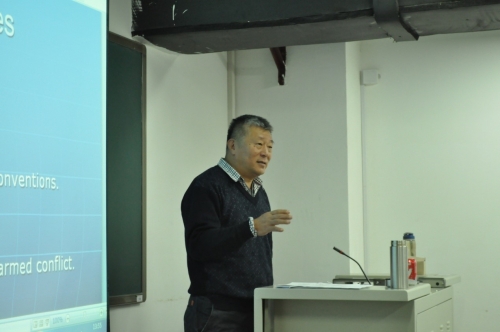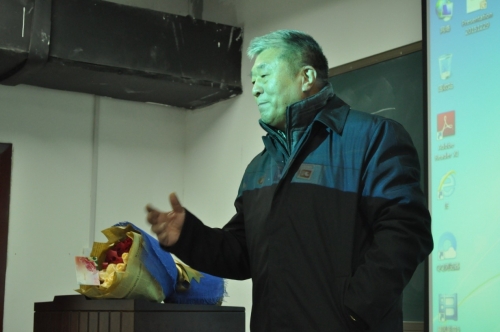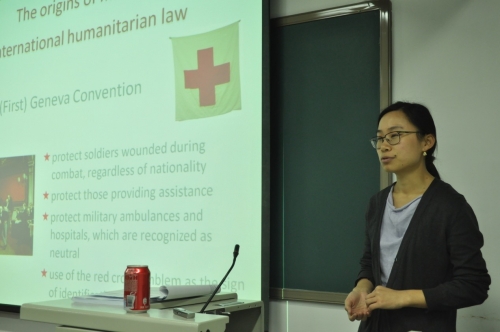Invited by the "2011 Plan" China Collaborative Innovation Center of Judicial Civilization, the "111 Plan" Base for Evidence Science Innovation and Talent Recruitment and the Institute of Evidence Law and Forensic Science, the Vice- President of ICTY, Judge Liu Daqun gave lectures on International Criminal Law for our students from December 12 to 29, 2015 in China University of Political Science and Law.

Judge Liu is the Vice- President of ICTY, and before being elected the judge of ICTY, he held important positions in Ministry of Foreign Affairs of the People’s Republic of China. Judge Liu used to be the Chinese Ambassador to Jamaica and he is the permanent representative of China in International Seabed Authority. Judge Liu has participated in the negotiations of the Rome Statute as the deputy head of the Chinese delegation and the chief negotiator. Judge Liu enjoys a very high international reputation.

Since 2013, Judge Liu has been hired as the Professor for the "2011 Plan" Collaborative Innovation Center of Judicial Civilization and given several lectures on International Criminal Law for our students in China University of Political Science and Law. In his courses, Judge Liu expressed about the proceedings of the international criminal cases, relevant rules of evidence and the problems of the substantive law from the point of some significant cases in international criminal courts. Judge Liu’s courses are welcome by our students.

This series of course included nine lectures; Judge Liu introduced the principles of International Criminal Law, the settings of International Criminal Court, genocide, war crimes, crime against humanity, crime of aggression, personal liability and the mode of the liability, and the rules of evidence and procedures.
Judge Liu gave lectures in a very clear and humorous way, and the students participated in the class discussions very actively. Through the nine-day course, students have gotten a general understanding of International Criminal Law, which is very useful and meaningful for their further studying in the area of International Criminal Law.